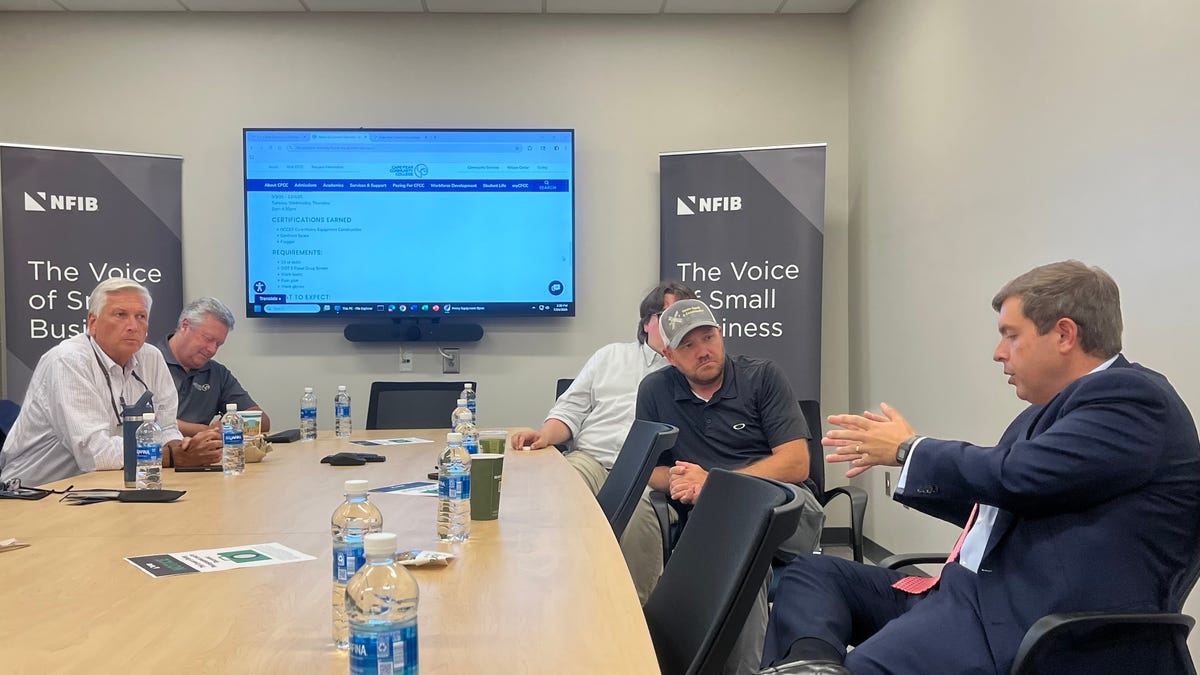WILMINGTON — Small business owners in the Wilmington area and elected officials discussed everything from artificial intelligence’s impact on jobs to new OSHA regulations in a roundtable discussion hosted by Cape Fear Community College in downtown Wilmington on July 24.
The event was organized by the National Federation of Independent Businesses (NFIB), a nonprofit and nonpartisan organization that supports and advocates for small business throughout the country.
NFIB aimed for the discussion to allow its members and local small business owners to meet and speak with their elected officials about potential issues small businesses may be facing.
N.C. Labor Commissioner Luke Farley was among the officials in attendance.
Farley, who’s been in office for about six months, emphasized a desire to meet the needs of both individuals and businesses in North Carolina.
“I want to be in touch with both the workers we protect and the businesses we regulate,” Farley said. He stated that his biggest challenge was trying to get the state to be more efficient and responsive.
Efficiency was a major topic of discussion at the event — though mostly in the context of artificial intelligence. Some small businesses owners relayed fears about it taking jobs out of the economy, while others praised AI’s ability to enhance jobs.
Attendees also raised questions about the next generation of workers, with some worried that certain trades were struggling to attract new employees.
Others displayed concern that state regulations on youth employment were preventing young workers from gaining the skills they will need in the workforce.
In response, Farley conveyed a firm stance on upholding child labor laws such as not allowing workers under 18 years of age to operate heavy equipment.
Immigrant labor, a hot topic of discussion in the national sphere, also came up. Farley again stood firm on upholding the letter of the law, saying that any business that knowingly employees people doing something illegal should be concerned. He encouraged all business owners to make use of the state’s E-verify program.
He also urged attendees to prepare for an upcoming “heat-stress” regulation that would require employers to protect their workers from heat-related illnesses. Farley stated the new regulation would affect nearly every business.
What are NFIB’s goals?
Around 8,000 businesses are members of NFIB. Membership in the organization is open to any business that isn’t publicly traded.
The intention behind discussions like this one is connect local small businesses with their elected officials and allow those elected officials to hear from their constituents, said Gregg Thompson, the state director for NFIB.
Charlie Kingree is a reporting intern for the StarNews. You can reach him at ckingree@gannett.com.



